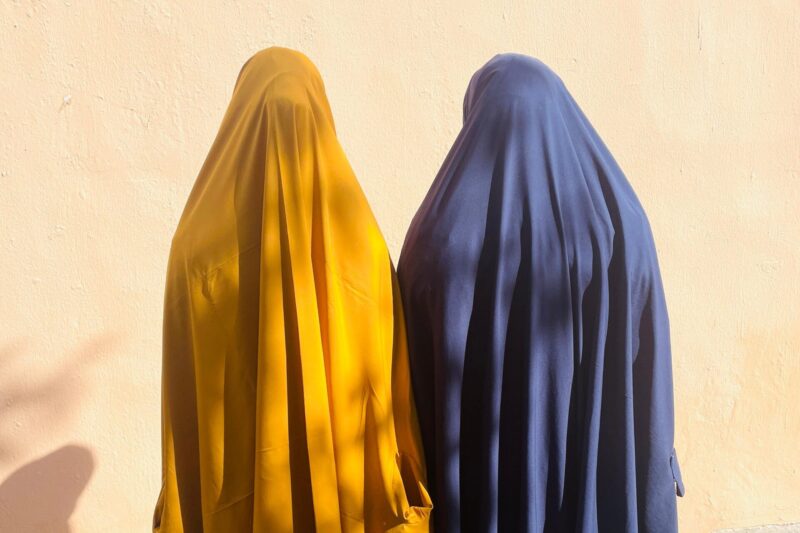Escalating drug abuse among young people and an increase in girls selling sex to meet their basic needs are getting ‘out of hand’ in internally displaced persons’ camp, says community leader.
In a desperate measure to survive, young girls and women, including widows and divorcees, in Borno State’s internally displaced persons’ camps are selling sex for food.
Drug abuse and other social vices – such as theft and thuggery, rape and other forms of gender-based violence – are also escalating.
The National Emergency Management Agency (NEMA) has raised the alarm over the increase in cases of drug abuse, prostitution and other social vices in the Muna internally displaced persons’ (IDP) camp, which is on the outskirts of Maiduguri, the capital of Borno State in Nigeria’s northeast.
The camp is home to more than 9,400 households and about 48,000 displaced persons.
At a two-day town hall meeting – on Tuesday and Wednesday, April 15 and 16 – held in the camp, NEMA’s northeast zonal coordinator, Abdullahi Sirajo, urged parents and community leaders to work with authorities to tackle the alarming issues.
Although he was addressing residents of Muna camp, other IDP camps and host communities in Borno State are experiencing similar distressing behaviour.
The situation is getting out of hand
Sirajo, represented by the agency’s head of operations in the northeast, Manir Gidado, said: “I’m pleased to report that several strategic measures were adopted during the discussions to address these social problems. We also assured the residents of NEMA’s continued support to ensure their comfort and dignity as they prepare to return to their ancestral homes.
“Our engagement was very fruitful. We discussed how to reduce drug abuse among youths, prostitution, security threats and other related issues.”
Mustapha Mohammed, a community leader at Muna said social problems were openly discussed.
Topping the agenda was increased drug abuse among young people and the alarming practice of young girls and vulnerable women who were selling sex to meet their basic needs.
“The situation is getting out of hand,” he said.
The community leader attributed the situation to a lack of humanitarian aid assistance and record-high poverty.
“The problem of drug abuse among young people has been in existence for a while, but the recent escalation has been compounded by the lack of humanitarian aid and poverty.”
Residents, particularly displaced persons, who were forced to flee from their ancestral hometowns because of the “Boko Haram insurgency”, are experiencing a cost-of-living crisis. The high price of commodities, including fuel and food, has put even basic essentials out of reach for many.
Food insecurity has been worsened by ongoing deadly insurgent attacks – by the Jamā’at Ahl as-Sunnah lid-Da’way Wa’l-Jihād (JAS), more commonly referred to as Boko Haram, and the Islamic State West Africa Province (ISWAP) – who threaten farmers and often prevent them going to their land to tend to their crops.
Recently there has been a surge in the number of attacks – including killings and kidnappings – even in IDP camps and host communities close to Maiduguri.
“The lack of boundaries and restrictions in the camp, which is not fenced, has also contributed to the escalation of problems,” said Abubakar Usman, also a resident of Muna. “Anyone can enter the camp and build a tent without following due protocols. This has led to the influx of individuals, including those from the demolished brothels in the Galadima area of Maiduguri, who have brought their illicit activities into the camp.”
Galadima was a notorious area of the city known to be the home of drug dealers, prostitutes and criminals.
Young women engage in prostitution and drugs
Nana Mohammed, a women leader at the camp, corroborated Usman’s account, stating that new arrivals were mostly unmarried young girls, some of whom had run away from their parents, as well as divorcees and widows.
“Out of shere desperation some of them have turned to prostitution as a means of livelihood, inviting men into their tents.
“As a mother of three young girls, seeing girls their age engaging in prostitution is extremely disturbing,” she said. “We are trying our best to help them out of this situation, but our best is not enough. We can’t do it alone.”
A concerned parent
Usman, a father, confirmed that young girls had resorted to prostitution to survive, often for negligible amounts of money.
“The issue became rampant after strangers from different areas arrived in the camp,” he said. “It is disturbing how young girls in the Muna IDP camp have resorted to prostitution to survive, with many engaging in this activity for a negligible amount of money. They are desperate and they have no other means of making money,” he told Ndarason.
Other residents expressed concern over the worsening social conditions in the camp. They said vulnerable children and people with disabilities were especially at risk.
All hands must be on deck
Nana Mohammed emphasised the need for collective action: “Everyone, including government agencies, humanitarian organisations, camp leaders and community members, needs to work together to address the issues of prostitution, drug abuse and security challenges.”
The camp leaders, in collaboration with NEMA officials and security forces, have decided to take measures to eradicate bad behaviour, including prohibiting the sale of drugs and preventing those who bring customers into the camp for prostitution from operating.
“The situation highlights the need for urgent action to address the security challenges and humanitarian needs in the camp.
“With more than 48,000 displaced persons, Muna IDP camp requires adequate support and protection to ensure the wellbeing and dignity of its residents,” she said.
AYSHA MUSTAPHA KOLOMI








